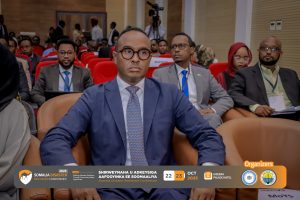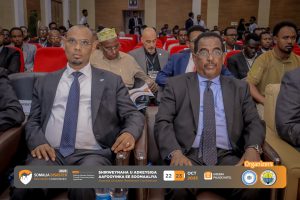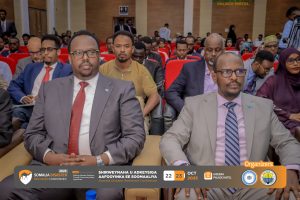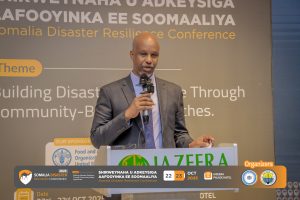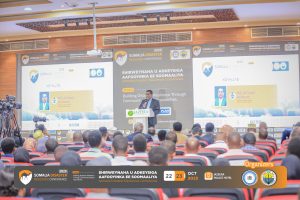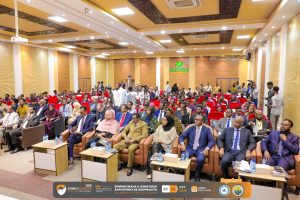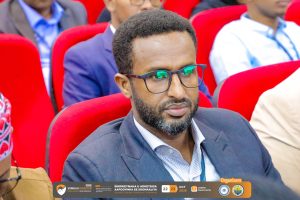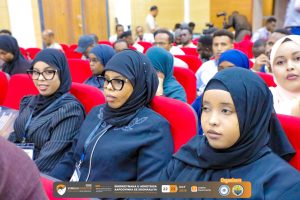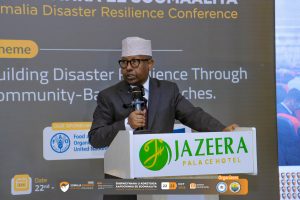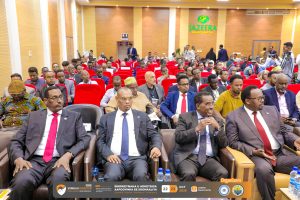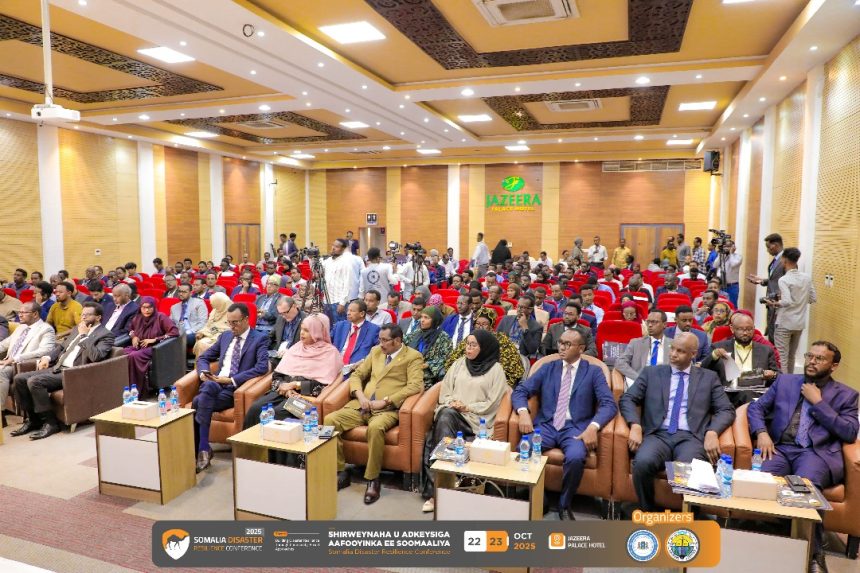Mogadishu, Somalia— The Second Somalia Annual Disaster Resilience Conference (SDRC), a critical two-day forum dedicated to confronting the nation’s profound climate-linked vulnerabilities, commenced today in Mogadishu. Organized jointly by the Somali Disaster Management Agency (SoDMA) and Mogadishu University, the conference is driving a national shift from perpetual crisis management toward “Building Disaster Resilience Through Community-Based Approaches.”
The opening session was marked by an unprecedented display of governmental and international unity, focused on integrating localized knowledge and rigorous research into the very framework of national policy and legislation.
Delivering the highly anticipated Official Opening Remarks, H.E. Salah Ahmed Jama, the Acting Prime Minister and Deputy Prime Minister of the Federal Government of Somalia, provided the highest political directive for the conference, affirming that the resilience agenda is central to the nation’s strategic future.
H.E. Jama declared that research is not merely an advisory tool but the foundational component of national decision-making:
The Acting Prime Minister, who is also the Deputy Prime Minister of the Federal Government of Somalia, Mr. Salah Ahmed Jama, who participated in the opening of the 2nd Somalia Disaster Resilience Conference, pointed out that research is the backbone of the Federal Government of Somalia’s decision-making.
He explicitly linked the conference’s goals to the nation’s highest development strategy, emphasizing that all progress must be evidence-based:
The Deputy Prime Minister stated that the National Transformation Plan (NTP) for 2025–2029 focuses on basing national development and policies on data, evidence, and genuine research. He specifically highlighted the importance of a scientific understanding of disaster risks, based on strengthening community capacity and economic infrastructure, to reduce disaster risks and strengthen social resilience.
This statement ensures that the research papers presented at the SDRC will directly inform the next five-year national plan.
H.E. Jama further emphasized the deep, practical message the conference sends to the nation:
Mr. Salah also pointed out that this conference sends a profound message based on how research, local knowledge, and community participation can be transformed into effective action, and that research is the pillar of sound decision-making.
His remarks concluded by positioning the conference within Somalia’s broader state-building project, noting that the nation is undergoing a phase of rebuilding government capacity and public services to ensure they reach all segments of society.
The high-level political endorsement was supported by a unified front from the institutional co-organizers and international partners.
H.E. Mohamud Moalim Abdulle, Commissioner of SoDMA, defined the operational goals: “This is the second conference jointly organized by the National Disaster Management Agency (SoDMA) and Mogadishu University, with the aim of creating a platform… to establish systems based on clear research and planning to address the country’s disasters.”
Professor Ibrahim M. Mursal, President of Mogadishu University, asserted the intellectual imperative: “Knowledge is the greatest power with which we can prevent the disasters in our country,” pledging that the university will intensify its research efforts to achieve definitive solutions.
The commitment to national self-reliance, with government agencies and the private sector cooperating to build a resilient society, was highlighted by H.E. Dahir Shire Mohamed, Minister of Petroleum and Mineral Resources, while H.E. Mr. Georg Conway, the UN Head of Humanitarian Coordination for Somalia, validated the forum as a “crucial solution” for integrated analysis to reduce humanitarian risks.
The Second Somalia Annual Disaster Resilience Conference has, through its opening addresses, established a national consensus: Somalia’s path to resilience is irreversible, founded on the strategic integration of grassroots knowledge, academic research, and the highest level of government policy. The focus now shifts to the research presentations and panel discussions that will define the specific actions for the coming years.
